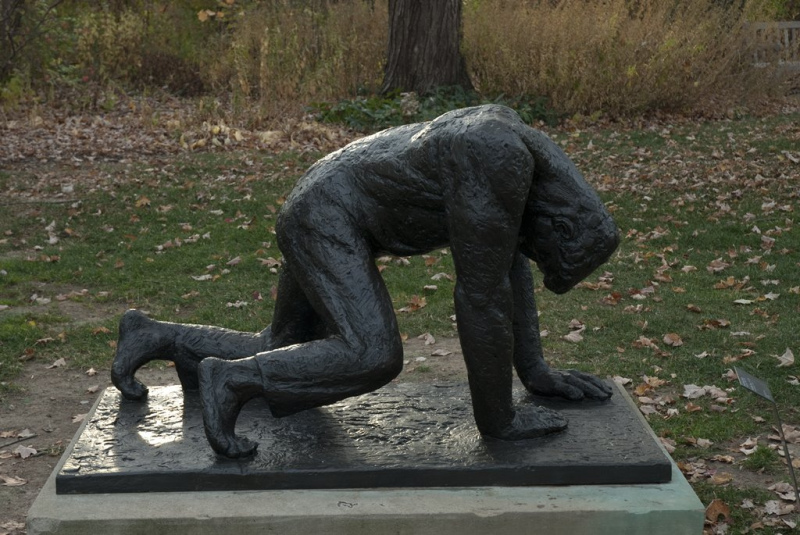Previously, in Romans: Paul has been encouraging mutual respect and accommodation for others, in order to experience the peace and unity that is pleasing both to God and people.
Romans 15:1-13
1We who are strong ought to put up with the failings of the weak, and not to please ourselves. 2 Each of us must please our neighbor for the good purpose of building up the neighbor. 3 For Christ did not please himself; but, as it is written, “The insults of those who insult you have fallen on me.” 4 For whatever was written in former days was written for our instruction, so that by steadfastness and by the encouragement of the scriptures we might have hope. 5 May the God of steadfastness and encouragement grant you to live in harmony with one another, in accordance with Christ Jesus, 6 so that together you may with one voice glorify the God and Father of our Lord Jesus Christ.
7 Welcome one another, therefore, just as Christ has welcomed you, for the glory of God. 8 For I tell you that Christ has become a servant of the circumcised on behalf of the truth of God in order that he might confirm the promises given to the patriarchs, 9 and in order that the Gentiles might glorify God for his mercy. As it is written, “Therefore I will confess you among the Gentiles, and sing praises to your name”; 10 and again he says, “Rejoice, O Gentiles, with his people”; 11 and again, “Praise the Lord, all you Gentiles, and let all the peoples praise him”; 12 and again Isaiah says, “The root of Jesse shall come, the one who rises to rule the Gentiles; in him the Gentiles shall hope.” 13 May the God of hope fill you with all joy and peace in believing, so that you may abound in hope by the power of the Holy Spirit.
Points of Interest:
- ‘We who are strong ought to put up with the failings of the weak’ – In ethnicity, Paul identifies with the so-called weak in Rome, but in morals and conscience, with the so-called strong. Rather than insist that the weaker or the minority comply with the rest of the community (as would usually be the case both in Rome and in our own times), Paul says the majority have an obligation to run their communities in ways that welcome and give dignity to their more marginalized members.
- ‘the insults of those who insult you have fallen on me’ – Jesus’ sacrificial love doesn’t just give us salvation, it is also the model for our love of neighbor. The citation from Psalm 69:9 specifically highlights shame and rejection, implying that even if it causes us some degree of sacrifice or humiliation to support the marginalized in our faith communities, to follow Jesus is to do so.
- ‘with one voice glorify the God and Father of our Lord Jesus Christ’ – Paul envisions the Jesus people in Rome praising God in peace and harmony. It’s like an old Coke commercial, but with Jesus and not a commercial product at the center of the singing. The Roman house churches were 4 limited by space and persecution to gathering in groups of only 10 or 20 people, so they had never experienced this kind of large group communal singing, but they’re invited to imagine that their communal harmony will bring the same joy to them and God that this kind of chorus would.
- ‘welcome one another, therefore, just as Christ welcomed you, for the glory ”of God’ – This line is a summary of the whole section: mutual welcome that mirrors God’s welcome of each of them. It also hints at more of the reason for this mutual acceptance and peace. It glorifies God, perhaps inherently in the chorus of praise it produces as we just heard. It also seems to be part of Paul’s expectation for how more Gentiles will come to know God, by seeing profound love and unity among the people who worship Jesus.
- ‘a servant of the circumcised… in order that he might confirm the promises given to the patriarchs’ – Verses 8 and 9 summarize the mission of Jesus that Paul has explained throughout the letter. Jesus fulfilled the promises given to the Jews since their founding fathers, for God to be with them and make them both blessed and a blessing to others.
- ‘and in order that the Gentiles might glorify God for his mercy’ – Jesus also fulfills God’s promise that all people on earth will be brought into revelation of God’s trust and experience of God’s goodness and care.
- ‘as it is written…’ – As God’s commitment to the whole earth, and not just Israel, wasn’t spoken about as much in his tradition, Paul cites this commitment from all three sections of Jewish Scripture – the law, the prophets, and the writings.
- ‘may the God of hope fill you…’ – The hope in the closing benediction is tied to the prophecy from Isaiah that the Gentiles too will hope in Jesus. The God of hope wants them to be full of this hope, even when it will take the power of the Holy Spirit for this to be so.
Taking It Home:
For you – What if at least part of the purpose of God in your life is bound up with the harmony and love you bring about in your community of faith? How can you agree with and participate in this purpose God has?
For your city/church – The thrust of this passage seems to be that all along, God has been eager to have people like you in God’s family, and that God would say the same thing about many other people and groups in your city. Pray that God does things in the life of your church that would effectively and broadly communicate God’s hope, joy, and peace.











